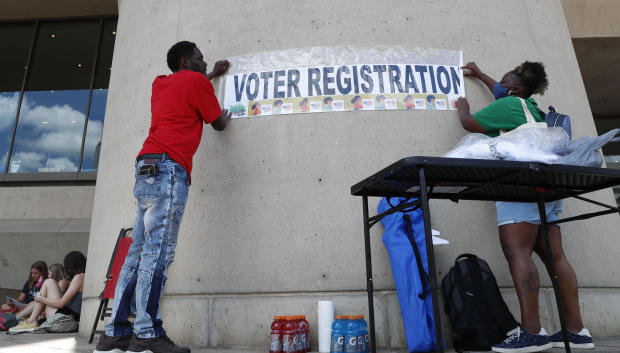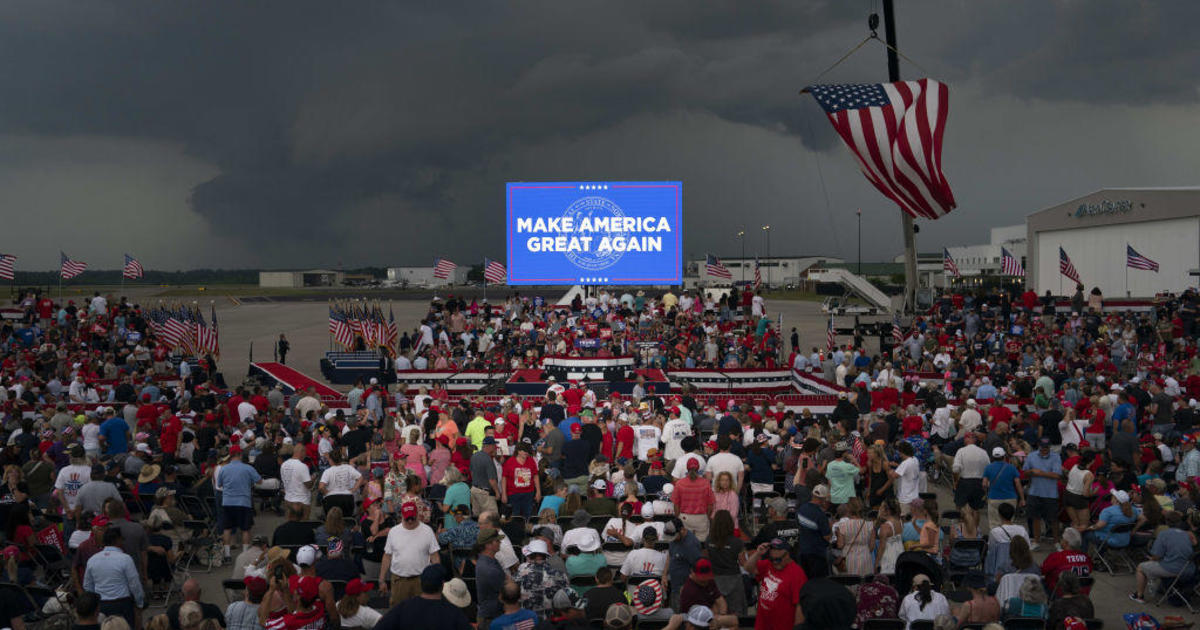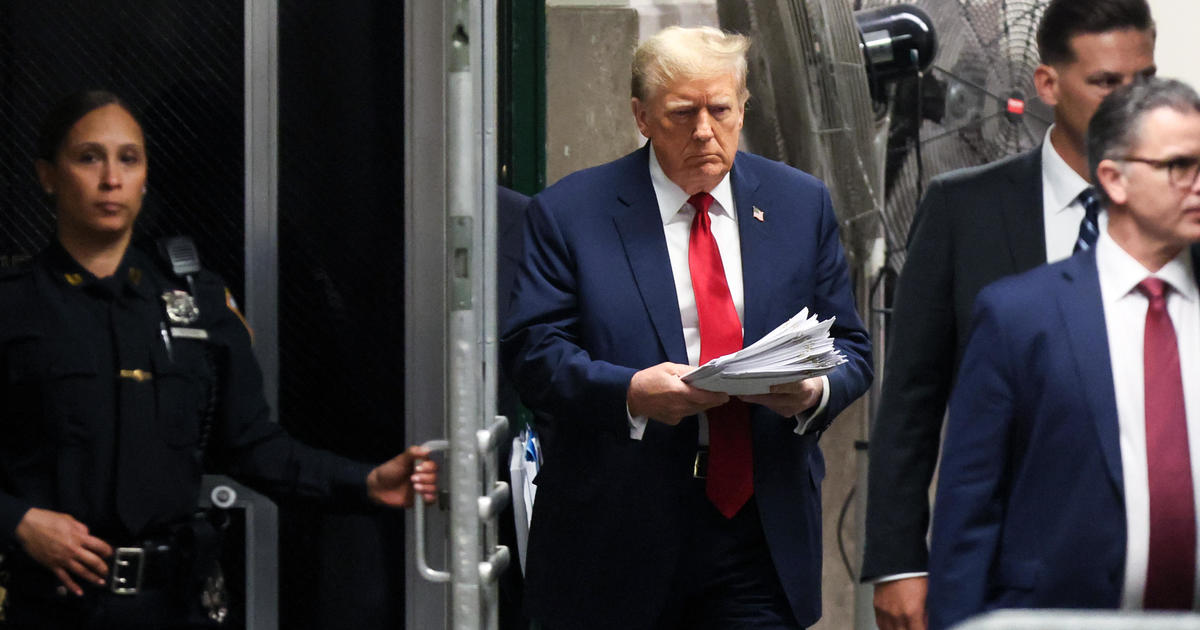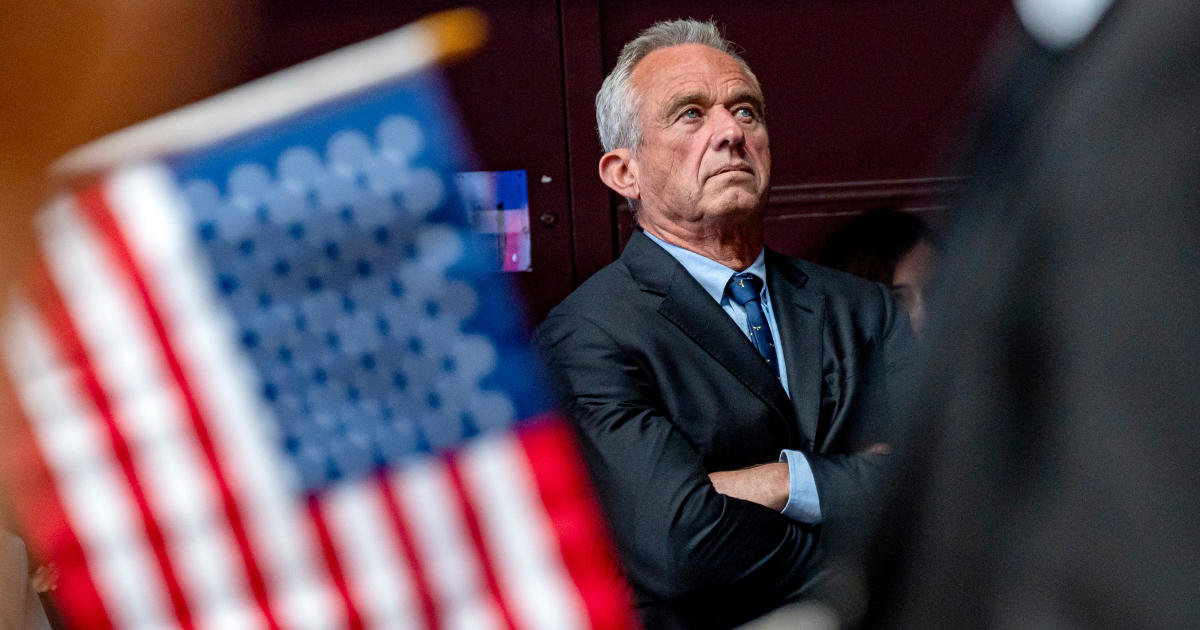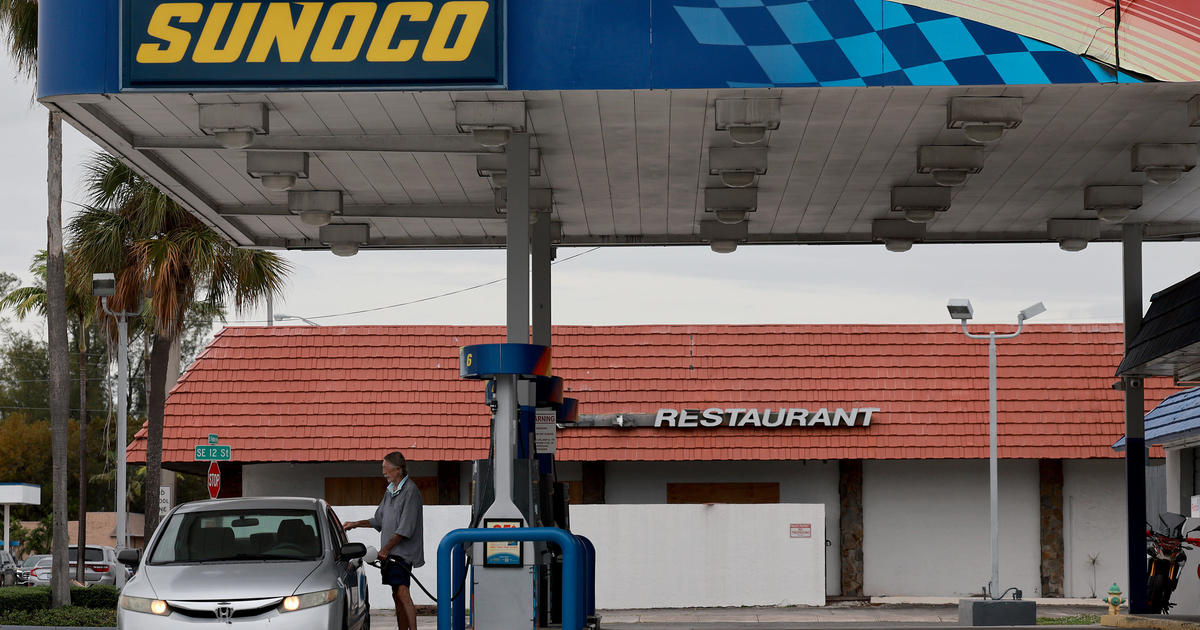Pandemic upends traditional voter registration efforts ahead of November election
Washington — With college campuses closed, festivals and concerts canceled, and motor vehicle offices shuttered, the coronavirus pandemic has disrupted not only the normal way of life for millions of Americans, but the traditional means of voter registration during an election year that could attract record turnout.
Now, civic groups devoted to signing up new voters are trading clipboards for web pages and retooling the ways through which they reach prospective voters ahead of the remaining primaries and the general election, when voters will cast their ballots for president all the way down to their local district attorney.
"Most people that we interact with register to vote by an organizer or volunteer on their college campus with a clipboard in their hands," Charlie Bonner, communications director of MOVE Texas, a nonpartisan organization that seeks to increase youth participation in elections, told CBS News. "Now that campuses have closed, those efforts all stopped."
While 39 states and the District of Columbia offer online voter registration, Texas is among the small handful that does not. As a result, Bonner said the coronavirus pandemic forced MOVE Texas to build out its website to allow prospective voters in the state to request a voter registration form, which the group then mails with all postage paid.
"This is a very difficult state to register in on a good day," he said of Texas. "We are now on the worst day."
Before the pandemic began its rapid spread across the United States, MOVE Texas registered more than 7,000 people in the weeks leading up to Super Tuesday on March 3, Bonner said. But as dorms were shuttered and in-person classes moved online, forcing students to leave college campuses and return home, Bonner said the group saw a significant dip in the number of people it registered to vote.
To counter that decline as the November election draws closer, MOVE Texas is tapping into the traditional means of outreach — phone banking, text messaging, social media campaigns — and applying it to voter registration. The group will be running a texting program to reach new voters and advertisements on social media, as well as hosting online concerts to drive voter registration.
"The infrastructure things being forced by COVID, these new digital outreach structures are critical to reaching young people where they are in a way campaigns have never done," Bonner said.
Polling shows that Americans have a high level of enthusiasm about voting in the 2020 election, and new voter registrations in the first two months of this year outpaced those in the same time frame in 2016, according to a June report from the Center for Election Innovation and Research. But the report found that in the 11 states that were studied and the District of Columbia, all experienced a drastic drop in new voter registration numbers after the coronavirus hit.
In the battleground state of Florida, for example, nearly 110,000 new voters registered in February, but by April, there were just over 21,000 new voter registrations. In February 2016, by comparison, the state saw more than 87,000 new registrations and in April 2016, more than 52,000.
Only California and Wisconsin reported more new voter registrations in March 2020 than March 2016, the Center for Election Innovation and Research found.
"Everyone is talking about vote-by-mail, which is great, but you can't even vote-by-mail if you can't register to vote. You can't even have that conversation," Bonner said.
For the League of Women Voters, the group typically registers voters at high schools, naturalization ceremonies, festivals and public transit locations, said Jeanette Senecal, its senior director of mission impact. The organization was planning to attend naturalization ceremonies between January and November of this year where more than 140,000 people would become new U.S. citizens.
"That's 140,000 people that we had planned to have access to. Now, many of them have not had their ceremony," Senecal told CBS News. "A lot of the opportunities to register voters in person are not really available to us."
To counter the impacts the coronavirus pandemic has had on voter registration, the League of Women Voters instead created a powerpoint presentation to provide to schools it works with and is looking for new ways to direct voters to its online resources.
"I don't believe there's any state that has had the registration cycles for the comparable election cycles," Senecal said. "Because DMVs aren't open, festivals aren't happening, there aren't as many registrations coming through."
While the pandemic has roiled registration efforts, many voting groups have found that the civil unrest sparked by the death of George Floyd in Minneapolis at the end of May has led to a surge in new registrations.
"People started to get energized in that moment," Bonner, of MOVE Texas, said. "People getting involved in the hyperlocal level, they're seeing they can make an impact on police brutality and systemic racism by voting for their district attorneys, sheriffs, all these things that are not the sexiest, but it's where people are finding their entry point to make a difference."
Adorning face masks and armed with hand sanitizer, volunteers with the League of Women Voters are now signing up new voters at rallies and racial justice demonstrations, Senecal said.
"People are seeing that their voice and their vote matters. It matters who was elected to their sheriff, their town councils," she said. "I do think this is a catalyzing moment where people are saying, 'This is a problem, here is one way I can address it: I can register to vote and try to impact change in my community.'"
Rock the Vote, which has run a digital effort for voter registration and turnout for several years now, making it well-positioned in the era of the coronavirus, reported it processed more than 125,000 voter registration applications in June alone, far surpassing the fewer than 40,000 processed in June 2016.
Carolyn DeWitt, Rock the Vote's executive director, said the group's platform has processed 525,000 voter registration applications so far this year, a figure it did not hit until September in the 2016 cycle. Rock the Vote has also helped more than 175 organizations transition from registering voters in the field to online since mid-March as they have had to shift their strategies due to the pandemic, she said.
"What we saw around the days leading up to and during the initial protests and continued to see is an increase in voter registration, an increase in sharing information about elections and people really looking to take action," DeWitt told CBS News. "This is bigger than the 2020 election. This is about the values of our country and whether or not we're prepared to handle not just a pandemic, but ready to handle and are bold enough to really look at the systematic racism, structural racism. That's a bigger issue than the 2020 election."
